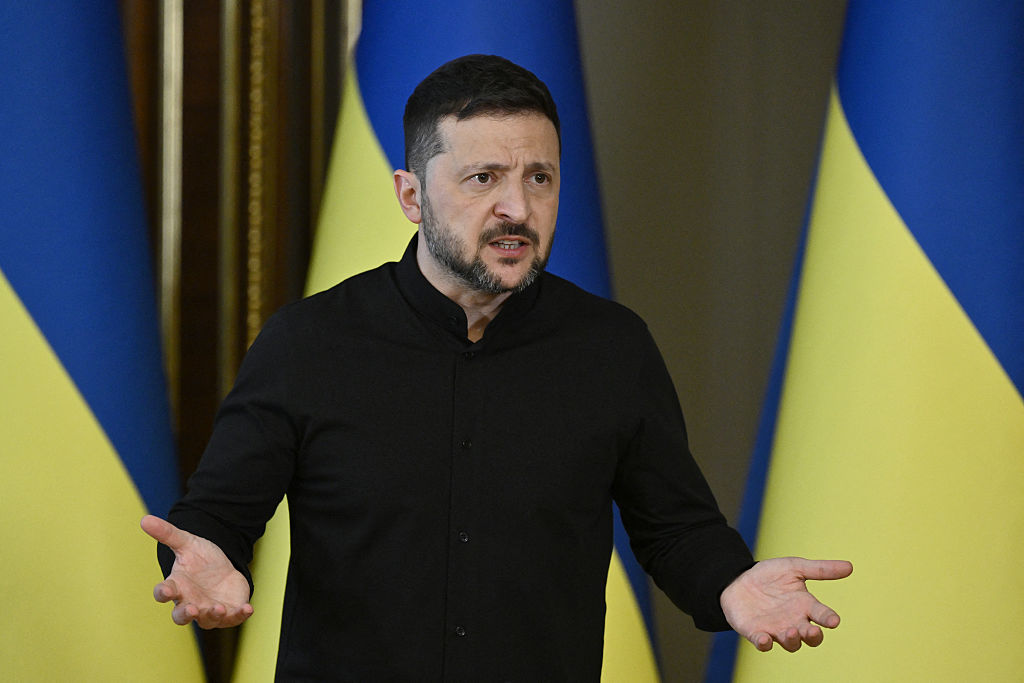For ordinary Ukrainians, still living in the midst of war, still deeply worried about the Kremlin’s next move, watching President Donald Trump over the past few months has been, above all, emotionally draining.
[time-brightcove not-tgx=”true”]
Attitudes have fluctuated from negative to positive, and then from positive to negative with exhausting rapidity.
Ahead of last year’s American elections, most of our sympathies were, unsurprisingly, with President Joe Biden. Yes, we saw him as sometimes too cautious, even fearful when it came to Russia. But he assured us and the world that the U.S. would not leave Ukraine standing on its own—and those promises were enough for most Ukrainians to forgive what so many here saw as the Biden administration’s indecisiveness when it came to providing military supplies to Kyiv. Even if the support came slowly, we believed that it would indeed arrive at the frontline.
And so we viewed Trump with more than a little fear—after all, he said repeatedly he wanted to stop aid flowing to Ukraine.
But as he took office, some also sought encouragement from his promise to end the war in “24 hours.” Nobody here wanted this war. And no matter what some outside Ukraine might claim, everyone here wants it to end. Could Donald Trump in fact negotiate an end to Russian aggression?
This hope, however, did not last long. There are many in Ukraine who disagree with aspects of President Volodymyr Zelensky’s leadership. But even his staunchest domestic critics were stunned by the way he was treated in the Oval Office in February. The now infamous episode shocked Ukrainian society as a whole.
To be sure, there were those who tried to explain away what happened as a negotiating tactic; this was Trump signalling to Russia that he would play the role of mediator, instead of purely supporting the Ukrainian line.
But the fact is that the video of the Ukrainian President being verbally attacked by the American leader humiliated Ukrainians from across the political spectrum. It also extinguished any remaining hope in Ukraine that the United States would push back against Russian aggression—or that it would find a negotiated solution that would end the fighting and preserve our sovereignty.
It was against this backdrop that we watched the American leader’s envoy Steve Witkoff visit the Kremlin. And we found ourselves back at the starting point—as Witkoff met Vladimir Putin, we Ukrainians once again found ourselves feeling very worried. This time, there was also some anger—how could the U.S. betray us in this way?
From where we sit, still, in case anyone needs reminding, in a state of war, it seemed clear that Russia was suddenly feeling more confident. Here was the United States, effectively conceding that the Kremlin’s aggression would not be punished.
So, when it comes to America’s leaders today, how could we Ukrainians feel anything different? And how can we feel anything else now, as the “peace talks” begin this week in Istanbul?
I do not presume to speak for each and every Ukrainian, but the general feeling is clear: from here, inside Ukraine, these talks do not look anything like real negotiations. Russia appears to be feeling that it doesn’t need to negotiate—as I write this, it is not even clear if Putin will attend.
And so now, our hope lies elsewhere: in Europe. As America appears to be retreating from our corner—and that is how we feel, sitting here—we are looking more and more to our neighbors in the West. Will they be able to step in to the void left by the U.S.? We don’t know, and only time will tell. All we can do for now is hope.

